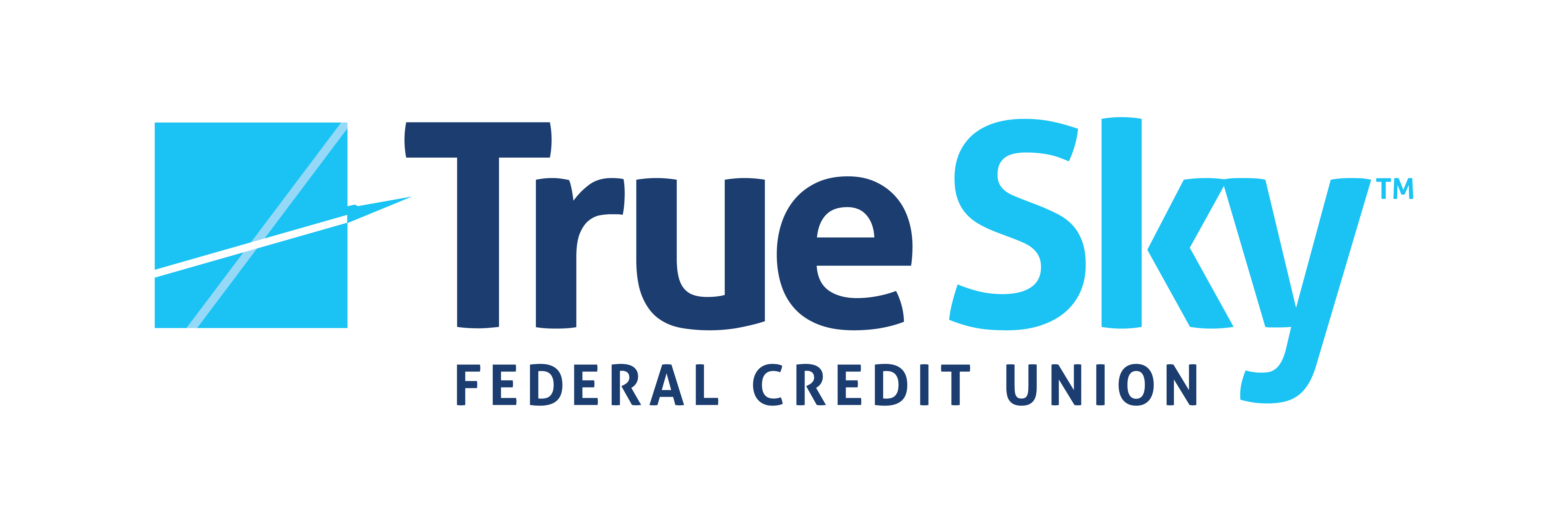What Does ATF on a Bank Account Mean?
ATF, TOD, ITF, or POD are all referring to the named beneficiary of a bank account. Having a trust account is beneficial for carrying out specific instructions of what to do with your assets during your life and after. In this blog, we explore what an ATF on a bank account means, how it works, who owns the money in a trust account, how the beneficiary is able to access money from a trust, and what would be considered an ATF transaction. Make sure to read to the end to see how True Sky Credit Union can help you add an ATF to your bank account! Before we get into the details of what an ATF on a bank account does, here is some bank lingo that will be helpful to know for this blog:
ATF: as trustee for
TOD: transfer on death
ITF: in trust for
POD: payable on death
ATF Accounts
Like we mentioned above, an ATF account has a named trustee. Trustee refers to a designated person who is given control or power over the assets of the account. The person who created the in trust account decides the guidelines for how the assets should be accessed and managed. If you need help deciding the best way to manage your assets, then a financial advisor can help you create a plan. Trust beneficiaries have to pay taxes on income and any other distributions received from a trust. However, they don’t have to pay taxes on any returns from the trust’s assets. The forms you should look for when filling out your taxes are the K-1 and 1-41 forms. There are a few different types of TOD accounts which we explain in detail below!
Trust Money Account Owner
There are three people that are part of a trust account, the grantor, the beneficiary, and the trustee. The grantor has the power to set terms for how the assets in an account are to be held, distributed, or gathered. The trustee is a third party who manages the assets, making sure the account fulfills the grantor’s wishes for the account. That leaves the beneficiary, aka, the receiver of assets. That’s it, that’s their part in this situation–that and paying taxes.
How an ITF Account Works
There are three different types of trusts: revocable, irrevocable, and testamentary trusts. Each of these accounts we talk about below are a version of an ITF on an account.
Revocable Trust Account
A revocable ITF account is an account where the trust can be revoked, terminated, or ceased to exist at any time, day or night, at the discretion of the owner(s). With that said, revocable trusts can be informal or formal.
Irrevocable Trust Account
An irrevocable trust account is an account where the trust cannot be broken, canceled, or even changed. An irrevocable trust is established in three different ways. 1. By statute; 2. By judicial order; 3. By death of the owner of a revocable trust. In the latter situation, the trust may still be insured as a revocable trust, though.
Testamentary Trust Account
A testamentary trust account is an account that is created after the grantor has passed away and is only created if it is in the person’s will. This account would work as an irrevocable trust account as default because the grantor has passed.
How to Access Money in a POD Trust
Money is accessed in a POD trust account by the third-party trustee to pay any third-party expenses, which is discussed upon account creation. Additional withdrawals can be made IF that was an established agreement upon first opening the account. However, the trustee is generally entitled to use the account funds to pay for several things.
Possible reasons a trustee may use your trust account:
- Taxes owed and/or debts (only after the grantor has passed away)
- To pay any professionals hired as administrative assistance
- Funeral and burial expenses
- Expenses related to properties, such as repairs or property insurance
Put a POD on your Bank Account with True Sky Credit Union
We want to help you put an ATF on your Bank Account by providing you with the tools and knowledge necessary. If you have any comments, questions, or additions concerning our ATF options, give us a call, chat with us online, or stop by one of our 12 locations in person and simply ask that another name be added onto your account! There will be paperwork involved, so make sure your designated beneficiary is present as well.
We have a variety of services, including checking and savings accounts, auto, home, and personal loans, financial help resources, and more. If you’re interested in becoming a member or want to learn more about us, feel free to explore our website, call, or stop by one of our many locations throughout the Oklahoma area. We look forward to assisting you to the best of our abilities in helping you improve your finances in 2023.
Phone




